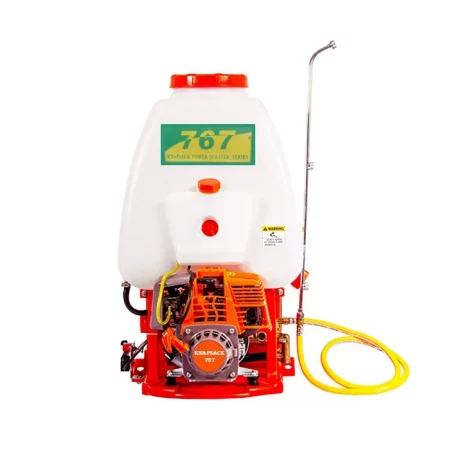By:Simon de la Rey, Director of MIS at Platcorp Group
Throughout Africa, farmers face intensifying threats from climate change, as shifting weather patterns, prolonged droughts, and severe floods put food security and livelihoods at risk. Yet, even as the urgency for climate adaptation accelerates, many still lack access to the financial tools necessary for transformation. According to the World Bank, Africa endures one of the world’s most significant finance gaps, with some regions experiencing shortfalls of up to 88%. This challenge is especially severe for smallholder farmers, who are often disconnected from formal financial systems due to insufficient credit histories, lack of traditional collateral, and geographic remoteness.
Technology, however, is starting to close this gap and fintech is emerging as a transformative force. It can deploy mobile platforms, cloud-based infrastructure, and alternative data models to deliver inclusive and scalable financial solutions. Farmers can now access microloans, insurance products, and climate-resilient investment tools, that were once out of reach. In harnessing the power of mobile connectivity and intelligent algorithms, fintech is dismantling long-standing structural barriers and bringing financial services to the once-excluded, empowering a new generation of climate-smart agricultural practices.
Tech-driven access to climate finance
Traditional financial systems have long excluded smallholder farmers, who often suffer from a lack of collateral, formal credit histories, or physical proximity to banking institutions. This exclusion has left millions without the capital required to adopt climate-resilient practices, making them increasingly vulnerable to droughts, floods, and soil degradation. However, fintech’s rise is transforming this reality through scalable, digital financial solutions that are tailored to agricultural needs. With high mobile penetration across Africa, a mobile-first approach is no longer optional, but fundamental. Technology must be designed for seamless mobile accessibility, from loan applications and repayments to financial literacy resources. This ensures that even farmers in remote areas can connect with critical financial tools. Mobile-based lending platforms are now delivering affordable, personalised loans that support investments in climate adaptation measures such as silage bunkers, terracing, and pest-management systems.
Meanwhile, advanced technologies like drone imaging, satellite data, and AI- powered farm assessments are enabling financial institutions to evaluate creditworthiness beyond traditional criteria. These innovations are unlocking capital for previously unbanked farmers and opening new opportunities for impact-focused investors to support sustainable agricultural development across the continent.
AI, Data Intelligence, and the Imperative of Privacy
Advancements in artificial intelligence (AI) and data analytics are revolutionising agricultural finance across Africa. Fintech companies are now deploying AI-driven models that move beyond the outdated credit scoring systems. These models can analyse alternative data sources, such as mobile money activity, transaction histories, and satellite imagery to more accurately evaluate risk and extend credit to those traditionally excluded from formal finance.
But AI’s power in agriculture lies beyond lending. Satellite-integrated platforms are providing real-time insights into weather trends and pest threats. Tools, like the Pest Risk Information Service (PRISE), which fuses meteorological data with predictive modelling, send farmers SMS alerts about potential infestations. Results have been transformative. In trials, farmers using PRISE saw maize yields rise by 109% and pest damage drop by 70%.
As these technologies become more embedded in rural economies, safeguarding the sensitive data they rely on is critical. Handling financial and personal data, especially within vulnerable, often low-literacy populations, demands an uncompromising approach to data privacy. Fintech platforms must implement robust cybersecurity protocols and comply with evolving data protection regulations to maintain user trust and ensure ethical use of digital tools. Integrity is just as important as intelligence when it comes to the future of AI in agriculture.
Building a resilient future through agile, climate-focused fintech
Fintech is not only accelerating the adoption of climate-smart agriculture but playing a vital role in advancing global climate objectives. Fintech platforms are directly contributing to the achievement of the UN’s Sustainable Development Goals (SDGs), particularly SDG 2 (Zero Hunger) and SDG 13 (Climate Action) by expanding access to finance for sustainable farming solutions. Digital financial tools are enabling farmers and financial institutions to collaborate in reducing emissions, improving food security, and building climate resilience across the continent.
To meet these goals at scale, fintech innovation must be supported by agile core banking systems. A common pitfall for traditional banking infrastructure is its frequent struggles in adapting to rapidly evolving market demands and regulatory changes. When financial institutions invest in modern, flexible, core systems, they can respond faster, and roll out tailored climate finance products more efficiently, better integrating with data-driven platforms that support sustainable agriculture.
These advances align with calls from global leaders, including UN Secretary-General António Guterres, who have been emphasising the importance of bold, adaptive solutions for vulnerable sectors like agriculture ahead of COP30. As climate threats intensify, fusing fintech innovation with agile digital infrastructure offers a clear pathway forward and can efficiently empower African farmers to build resilience while contributing meaningfully to global climate targets.
Simon de la Rey, Director of MIS at Platcorp Group
Throughout Africa, farmers face intensifying threats from climate change, as shifting weather patterns, prolonged droughts, and severe floods put food security and livelihoods at risk. Yet, even as the urgency for climate adaptation accelerates, many still lack access to the financial tools necessary for transformation. According to the World Bank, Africa endures one of the world’s most significant finance gaps, with some regions experiencing shortfalls of up to 88%. This challenge is especially severe for smallholder farmers, who are often disconnected from formal financial systems due to insufficient credit histories, lack of traditional collateral, and geographic remoteness.
Technology, however, is starting to close this gap and fintech is emerging as a transformative force. It can deploy mobile platforms, cloud-based infrastructure, and alternative data models to deliver inclusive and scalable financial solutions. Farmers can now access microloans, insurance products, and climate-resilient investment tools, that were once out of reach. In harnessing the power of mobile connectivity and intelligent algorithms, fintech is dismantling long-standing structural barriers and bringing financial services to the once-excluded, empowering a new generation of climate-smart agricultural practices.
Tech-driven access to climate finance
Traditional financial systems have long excluded smallholder farmers, who often suffer from a lack of collateral, formal credit histories, or physical proximity to banking institutions. This exclusion has left millions without the capital required to adopt climate-resilient practices, making them increasingly vulnerable to droughts, floods, and soil degradation. However, fintech’s rise is transforming this reality through scalable, digital financial solutions that are tailored to agricultural needs. With high mobile penetration across Africa, a mobile-first approach is no longer optional, but fundamental. Technology must be designed for seamless mobile accessibility, from loan applications and repayments to financial literacy resources. This ensures that even farmers in remote areas can connect with critical financial tools. Mobile-based lending platforms are now delivering affordable, personalised loans that support investments in climate adaptation measures such as silage bunkers, terracing, and pest-management systems.
Meanwhile, advanced technologies like drone imaging, satellite data, and AI- powered farm assessments are enabling financial institutions to evaluate creditworthiness beyond traditional criteria. These innovations are unlocking capital for previously unbanked farmers and opening new opportunities for impact-focused investors to support sustainable agricultural development across the continent.
AI, Data Intelligence, and the Imperative of Privacy
Advancements in artificial intelligence (AI) and data analytics are revolutionising agricultural finance across Africa. Fintech companies are now deploying AI-driven models that move beyond the outdated credit scoring systems. These models can analyse alternative data sources, such as mobile money activity, transaction histories, and satellite imagery to more accurately evaluate risk and extend credit to those traditionally excluded from formal finance.
But AI’s power in agriculture lies beyond lending. Satellite-integrated platforms are providing real-time insights into weather trends and pest threats. Tools, like the Pest Risk Information Service (PRISE), which fuses meteorological data with predictive modelling, send farmers SMS alerts about potential infestations. Results have been transformative. In trials, farmers using PRISE saw maize yields rise by 109% and pest damage drop by 70%.
As these technologies become more embedded in rural economies, safeguarding the sensitive data they rely on is critical. Handling financial and personal data, especially within vulnerable, often low-literacy populations, demands an uncompromising approach to data privacy. Fintech platforms must implement robust cybersecurity protocols and comply with evolving data protection regulations to maintain user trust and ensure ethical use of digital tools. Integrity is just as important as intelligence when it comes to the future of AI in agriculture.
Building a resilient future through agile, climate-focused fintech
Fintech is not only accelerating the adoption of climate-smart agriculture but playing a vital role in advancing global climate objectives. Fintech platforms are directly contributing to the achievement of the UN’s Sustainable Development Goals (SDGs), particularly SDG 2 (Zero Hunger) and SDG 13 (Climate Action) by expanding access to finance for sustainable farming solutions. Digital financial tools are enabling farmers and financial institutions to collaborate in reducing emissions, improving food security, and building climate resilience across the continent.
To meet these goals at scale, fintech innovation must be supported by agile core banking systems. A common pitfall for traditional banking infrastructure is its frequent struggles in adapting to rapidly evolving market demands and regulatory changes. When financial institutions invest in modern, flexible, core systems, they can respond faster, and roll out tailored climate finance products more efficiently, better integrating with data-driven platforms that support sustainable agriculture.
These advances align with calls from global leaders, including UN Secretary-General António Guterres, who have been emphasising the importance of bold, adaptive solutions for vulnerable sectors like agriculture ahead of COP30. As climate threats intensify, fusing fintech innovation with agile digital infrastructure offers a clear pathway forward and can efficiently empower African farmers to build resilience while contributing meaningfully to global climate targets.
/* Shares”}};
/* ]]> */


















